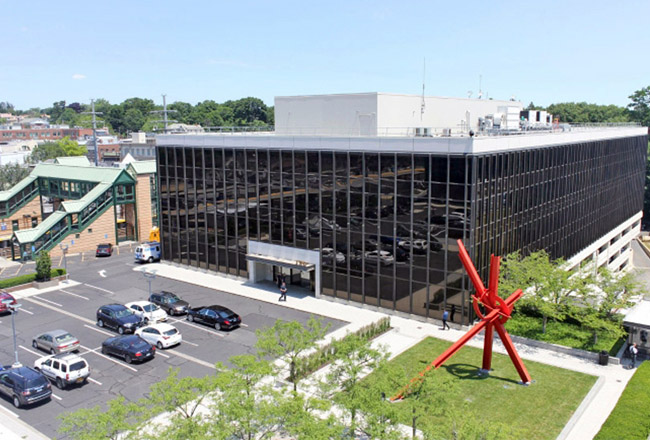Not drowning, but waving: How Connecticut is attracting more businesses
Is 2021 really shaping up to be the year of the Connecticut comeback?
Gov. Ned Lamont used that phrase to express his customary optimism during his annual State of the State address in January. But while Connecticut appears to be steaming ahead in terms of its economy ”” depending upon whom you ask ”” the hoary stereotype of it not being sufficiently business friendly remains (mostly) in place.
Chief Executive magazine”™s annual “Best and Worst States for Business” poll, published in April, found the Nutmeg State not exactly storming to the top, by moving from 2020”™s 46th to 43rd. The rankings were based on responses from 383 CEOs in March, whose top three priorities were tax policy, regulatory climate and talent availability.
(“A strong, pragmatic Covid showing by rookie Gov. Ned Lamont impressed CEOs ”” and pulled tiny Connecticut out of the basement,” the magazine hopefully remarked.)

But that ranking was preceded in March by U.S. News & World Report”™s naming Connecticut the 7th most business-friendly state, due in part to its business creation rate (2.5%), tax burden (10.7%) and patent creation (829.1 per million people). The publication further noted that the state is home to more Fortune 1000 company headquarters per capita than any other.
Both surveys took place before the seemingly sudden wave of major business announcements in Fairfield County over the past few weeks, including Philip Morris International, whose headquarters is moving from New York City to a yet-to-be-announced location in Fairfield County; Manhattan”™s iCapital Network, which is opening a Greenwich office; ITT, moving its headquarters from White Plains to Stamford; and Tomo, which recently announced plans to formally establish its headquarters in Stamford.
Coincidence?
“Pretty much,” laughed Peter Denious, president and CEO of AdvanceCT, the state government”™s economic development entity. “These deals always take a lot of time, and it just so happened that they all became official within a few weeks of each other.”

Though AdvanceCT has been given a significant amount of credit for the moves, Denious was careful to give credit to what he called “Team Connecticut,” which includes Lamont (“He”™s a former businessman himself, so he gets it”) and various members of his administration, especially David Lehman, commissioner of the Department of Economic and Community Development, which closely collaborates with AdvanceCT.
Denious said that talks with Philip Morris began in 2019; temporarily sidelined by Covid, when they resumed, “We had a lot of questions about tobacco,” even though it is Altria, from which Morris divorced itself in 2008, that produces Marlboro and other traditional cigarettes. While Morris does sell cigarettes outside the U.S., it is committed to producing IQOS, an electronic, heat-not-burn “tobacco product.”
“They were interested in the quality of our schools, health care ”” just the quality of life here,” Denious said. “Obviously we have a lower cost of living, certainly when compared with Manhattan, and there”™s a chance to own a place that has an actual yard.”
iCapital “already has a lot of employees in Connecticut, part of the post-pandemic phenomenon,” he continued. “I think they”™re realizing that maybe you don”™t need to ask your employees to commute every day.”
Similar factors were at play with ITT, he said, while the announcement by Tomo, which had earlier established an office in Stamford, was almost a mere formality.
“What”™s great about them is that they”™re a very young company, but they”™ve grown really, really rapidly over the last six months,” Denious said. With one of the largest seed rounds on record ”” $70 million ”” Tomo expects to employ up to 100 people in Stamford by the end of the year. As it expands, DECD will include “earn-as-you-grow” incentives that provide grants in arrears as job targets are reached.
The recently passed bipartisan budget, and Lamont”™s avoidance of new taxes, is helping draw first and second looks from companies, he said.
“Connecticut is not cheap, depending upon where you live,” Denious said. “But what we”™re doing, and how we got through Covid, says a lot. We had one of the most successful reopening plans out there, by any measure, and we”™ve maintained being one of the top states in the country when it comes to vaccination rate.”
As of July 11, Connecticut ranked fourth in the country with 67.9% of its population having received at least one inoculation.
“That”™s put Connecticut back on the map,” Denious averred. “The senior leadership of some of our companies tell me that that helps instill confidence, and that it speaks volumes about how the state really is working well.
“Connecticut is getting noticed again,” he continued, noting that “a couple” of additional major announcements could be made in the next few weeks. “The governor met (July 6) in person with a CEO in Connecticut, convincing them to grow even more here.”
One long-awaited project really is nearing completion, Denious added: A formal, long-term economic development strategy produced by AdvanceCT and DECD. “We could have that in a matter of weeks.”
Based in part on the Governor”™s Workforce Council, launched in late 2019 with the aim of breaking down barriers between the business community and state government agencies, the strategy will include upskilling and reskilling employees ”” $130 million has been earmarked to upskill those displaced by Covid ”” and to double down on workforce development.
”˜Bring It On!”™
It”™s all part of what Denious said is the ongoing effort to reverse expectations. “We live in a great state with a great value proposition. I say, ”˜Bring it on!”™ Let”™s go play offense for a change.”
“Offense” in this case is not restricted to business recruitment, but also company retention, he said. AdvanceCT is increasingly relying not only on Connecticut”™s 169 municipalities but also its various chambers of commerce and other economic development entities.
“We want to be able to get in front of a situation,” Denious said. “If a business is looking to potentially be acquired, we want to be able to understand what”™s going on and move as quickly as we possibly can.”
He admitted that there is still plenty of room for improvement when it comes to small businesses; according to a January report by Motley Fool, Connecticut ranked 50th when it comes to the best states to start a small business, ahead only of the District of Columbia. Criteria included tax climate, consumer spending, rate of new entrepreneurs, business survival rate over five years, labor costs and climate change impact.
“If we can help solve problems for (small businesses), put them in touch with the right people in the state to help ease their pain, then that”™s what we need to do.”
But the AdvanceCT chief is sticking to his belief that a rising tide can lift all boats, regardless of size.
“There”™s actual momentum in our state,” he said. “It”™s been a long time since anyone was able to say that. But we are committed to making our case for companies to come here and stay here.
“The real question,” he added, “is why aren”™t they coming to Connecticut?”